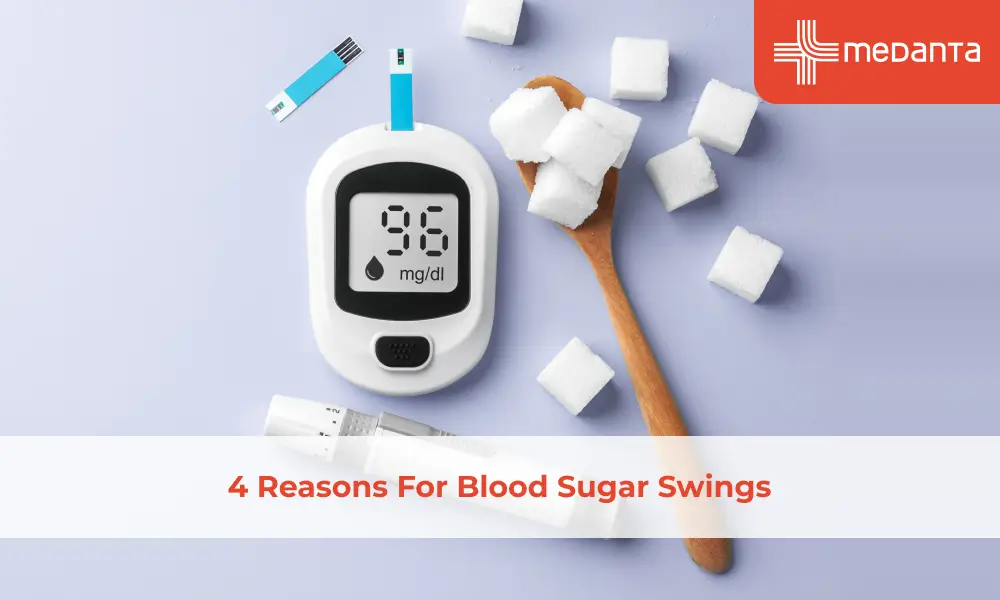4 Reasons For Blood Sugar Swings

Unexpected blood sugar swings are a part and parcel of managing diabetes. Certain foods, drinks and lifestyle factors can sometimes kick your sugar levels out of balance. Here are some triggers that could cause sudden swings in your blood sugar levels.
Surprising Reasons for Blood Sugar Fluctuations
Stress
Stress is one of the biggest factors that can contribute to swings in sugar levels. When you are stressed, it triggers the body to release cortisol, speeding up your breathing and heart rate. This also sends glucose and protein stores from your liver into the blood system, which results in higher blood sugar levels.
If you suspect that being stressed out is causing a rise in your blood sugar levels, rate your stress on a scale from 1 to 10 every time you are checking your sugar for the next 2 weeks. If you see a connection between the two, it’s time to find an effective way to manage your stress.Lack Of Adequate Sleep
People with diabetes who have sleep disorders, trouble falling asleep or who wake up in the night several times a week have higher fasting blood sugar. This is because anything that throws you off your routine can make you feel fatigued. If your body is awake when it’s actually supposed to rest, it uses more energy to function. This can often result in developing insulin deficiencies.
Additionally, If you don’t sleep enough, you are likely to feel more tired during the day, which will consequently make you hungrier than normal. As a result, you may consume more food, leading to a spike in blood sugar levels. The more fatigued you feel the more energy your body uses to function, when it’s actually supposed to rest, making it more likely to develop insulin deficiencies.Falling Sick
Cold, flu, and infections are physical stressors that can hike blood sugar. If you are taking medications for your cold, the sugar and alcohol present in them can spike your sugar levels further. The flu itself can dim your appetite and bring your energy levels down. When you're sick, check your blood sugar every 2- 4 hours and test your urine or blood for ketones. Keep yourself hydrated with lots of fluids and follow your meal plan and medications carefully.
Medications for Other Conditions
Certain medications for non-diabetic conditions can increase your sugar levels. For instance, diuretics prescribed for hypertension cause you to lose potassium when you urinate which results in an increase in sugar levels. Antidepressants and antihistamines can affect your weight and may spike blood sugar. Corticosteroids, that are used in the treatment of inflammatory diseases can also raise blood pressure.
Discuss your medications and daily habits with your doctor to tackle any factors that are causing a notable spike in your blood sugar levels.






